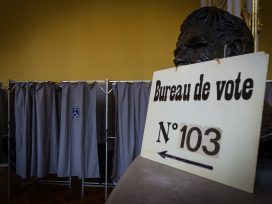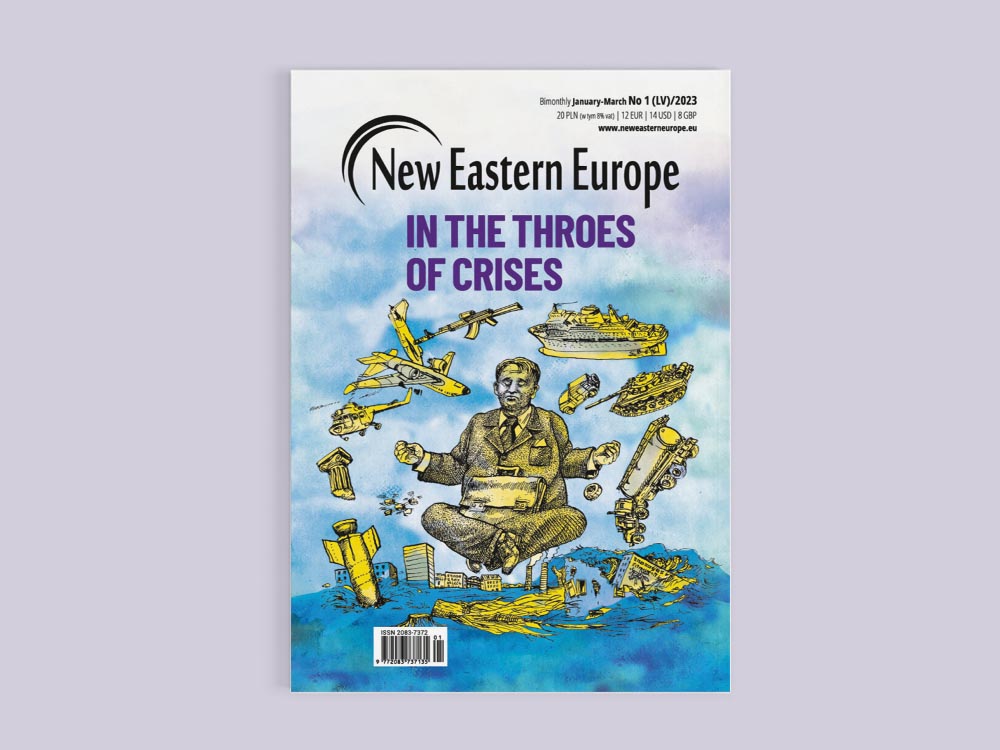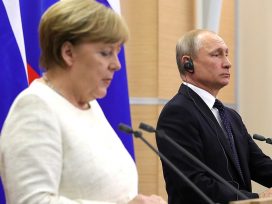
Voters have always overlooked breaches of democratic principle as long as they are getting what they want. This mattered less when politicians held each other in check. But with the tribalisation of public debate, democratic gatekeeping breaks down.
What the war in Ukraine has taught us about solidarity; why European democrats must insist on fair play; and Moldovan democracy under hybrid attack.
What is solidarity? An everyday occurrence between two neighbours co-existing in the same society? A nation-state providing security, justice and freedom to its citizens, or something more? According to Basil Kerski, the director of the European Solidarity Centre in Gdańsk, ‘solidarity without an international dimension is an empty and incomplete idea’.
When the Iron Curtain came down in ’89, the unification of Europe came closer than ever. But after one year of war in Ukraine, this revolution appears incomplete:
‘The war in Ukraine forced us to understand the European dimension of solidarity better. The challenge that we are faced with now is whether we transform this solidarity that we are observing in many European societies into a systemic policy for the whole of eastern Europe.’

Political scientist Filip Kostelka revisits a report on democracy written by three eminent researchers in the mid ’70s arguing that European democracy was backsliding. A great miscalculation, according to Kostelka: the heyday of European democracy still lay ahead – above all the democratisation of eastern Europe after 1989/91. Since then, the European democracies have increased substantially.
In Europe, dramatic democratic collapse seems to be a thing of the past. But though European democracy is stable, its health calls for concern.
Today’s anti-democrats have learned to play by the democratic rules of Europe and at the same time to get around them. A crisis is on the horizon, but it’s not too late for the defenders of democracy to insist on fair play:
‘European democrats have a lot on their plate, but their starting position is not at all bad.’
Moldova is widely feared to be the next target of Russian aggression. But it is already at war with Russia in hybrid form, with frequent Russian attacks on Moldova’s energy, media and social structure.
Marina Bzovîi, executive director of the Moldovan National Association of ICT Companies, reports that Moldova is threatened with national fragmentation. Since Gazprom reduced its energy supply to Moldova by 57% and began supplying the remainder to the breakaway republic of Transnistria for free, the cost of gas for the average Moldovan has increased by 600%.
Moldova media is also becoming increasingly fragmented. During the early months of the invasion, independent media followed events in Ukraine up-close, reporting the Russian invasion as an act of unprovoked aggression. But the bigger media institutions remained silent and then slowly began adopting the Kremlin narrative.
A shattered Moldova is now facing a brain drain as citizens with knowledge of cyber protection and journalism flee the country. Bzovîi’s only hope is that the diaspora will be able to help Moldova from afar.
Published 2 March 2023
Original in English
First published by Eurozine
Contributed by New Eastern Europe © Eurozine
PDF/PRINTSubscribe to know what’s worth thinking about.

Voters have always overlooked breaches of democratic principle as long as they are getting what they want. This mattered less when politicians held each other in check. But with the tribalisation of public debate, democratic gatekeeping breaks down.

The Russian invasion of Ukraine shows just how misguided German Ostpolitik has been over the last two decades. Even after 2014, when it was clear that economic rapprochement had brought no normative changes to Russian policy, Germany went ahead with Nord Stream 2.